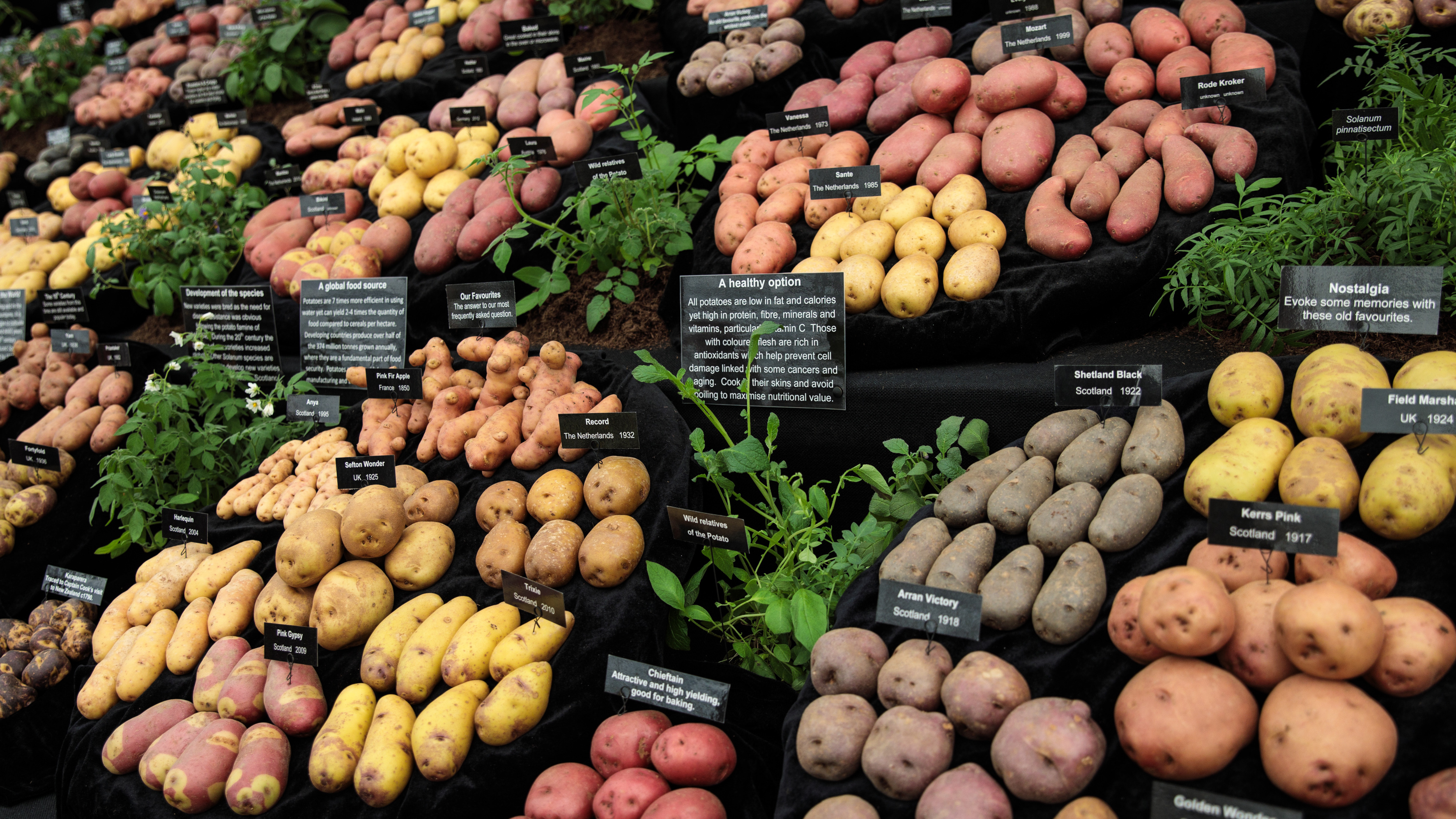Walmart Is Working To Build Potato Tinder
Most apps are not actually "the Netflix" or "the Uber" or "the Tinder" of what they purport to be. But Walmart is working on a patent-pending system for choosing groceries online, and it reads rather Tinderlike.
Here's how it works: When you're building your online grocery order, you'll see stock images. The stock images will show you what a potato is, in case you just landed from Mars. Once you actually place items in your order, Walmart uses "three-dimensional scanning" to send an image of an actual potato in the store. You'll then get to approve or reject that specific potato. Should you decide that this particular potato isn't a dog person, or doesn't share your love of the outdoors, or just has a weird dent in it, you can pass. An employee will then attempt to find you a better, more compatible potato.
According to the rendering on CB Insights, this system would send the images as notifications to a customer's phone or computer. Unlike Tinder, though, customers have a fixed number of "passes" before Walmart presumably gets fed up with your picky ass and just gives you the lumpy potato.
The technology is designed to solve one of online grocery shoppers' biggest complaints: They want to select the produce themselves. But is this really what we want? Potato Tinder?
I swear, if I get one more push notification on my phone, I might jump into a ravine. Breaking news, Instagram comments, my astrology app... everything conspires to make my phone beep and whirr and buzz 24/7. (I know, I know, I could turn these off. But then I'd be behind the 8-ball when Trump does his latest moronic something or when my moon moves into Taurus.) Walmart's service requires shoppers to respond to the produce photos within a set amount of time, so there's no ignoring your phone after you've placed an order.
Also, I thought all virtuous consumers were supposed to be embracing the "ugly food" movement to combat food waste. We're supposed to be cool with bruised apples and over-ripe bananas and misshapen limes, not rejecting produce for its aesthetic flaws. Maybe this is yet another way in which the service resembles Tinder: As accepting as we think we are, we're still shallow enough to swipe left when we don't like your look.
